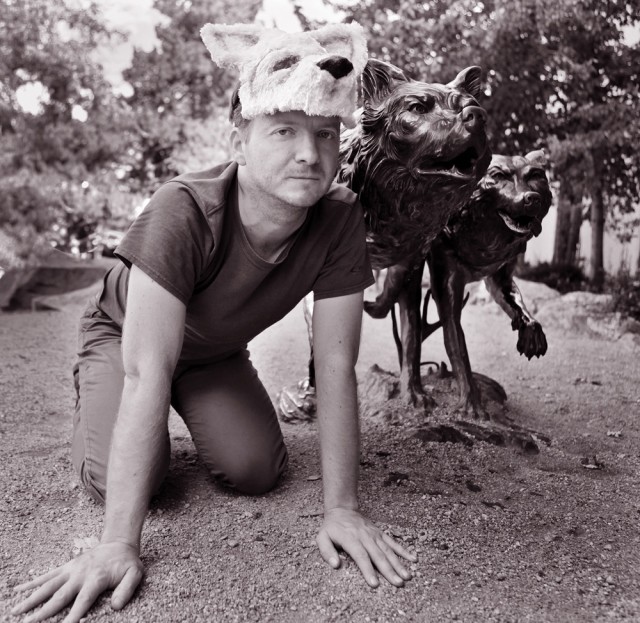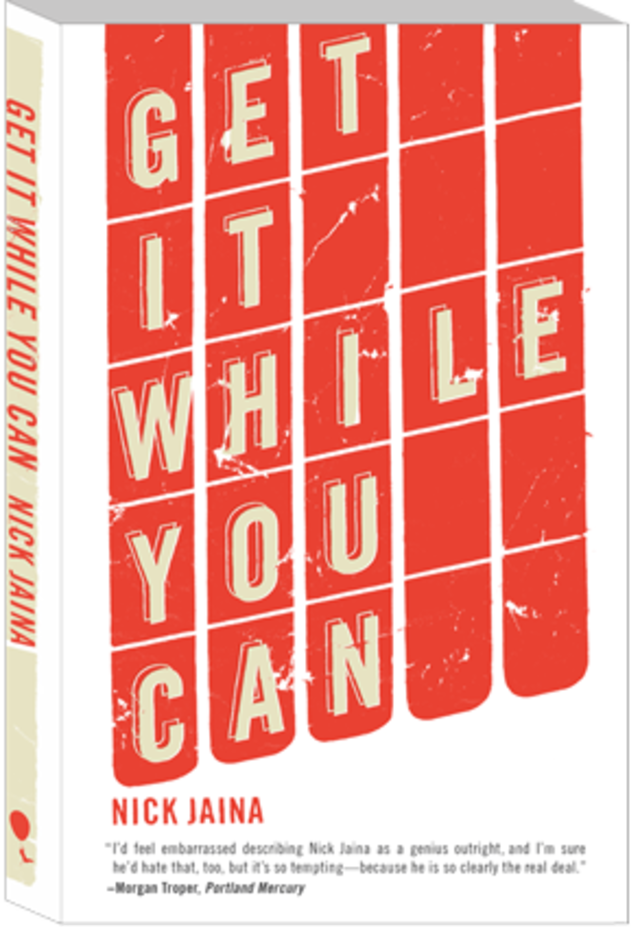Great Lines from Songwriter Nick Jaina's New Memoir

Portlander Nick Jaina is nothing if not prolific. In the last five years, he's founded a dance collective in New York City; composed music for three ballets, and released his own lo-fi folk rock album Primary Perception (2013 on Fluff and Gravy Records). Also in that time, he's performed his own work of "theatrical storytelling" at New Orleans's Fringe Festival, and written for more high-minded literary blogs than you can shake a keyboard at.
As of this week, Jaina can add long-form non-fiction to the list. His just-released memoir Get It While You Can (from small press Perfect Day Publishing) centers on his experience at a ten-day silent retreat which Jaina attended in order to address a pervasive sense of failure triggered by the loss of his cherished guitar.
Despite the meditative turn, Jaina is quick to distance his work from memoirs you might find in the self-help aisle.

“This is not a Buddhist book, and it’s not a crisis book,” says Jaina. “I use the meditation retreat as a framing device to talk about more than that.”
Get it While You Can—which Jaina wrote in Colombia “because it was cheap and I didn’t know anyone there”—is a beautiful exploration of suffering, backlit by the clear delight that Jaina takes in exploring the workings of the natural world. Early in the book, Jaina writes “I suspect that all my favorite writers are technical writers, but instead of examining video players they’re just sitting there examining themselves.” Jaina’s statement could include his own prose; fans of his introspective song lyrics will be pleased but not surprised.
Jaina reads (and performs songs) at 9:30 pm tonight at the Laurelthirst Pub. In the meantime, a few of our favorite lines:
On Jaina's relationship with his stolen guitar:
“Every time it comes out of the oversized baggage slot next to the golf clubs and surfboards and I see that it hasn’t been broken in half, I feel a little like Calvin when he takes Hobbes out of the dryer.”
On Ray Charles covering “Walk the Line” in front of Johnny Cash:
“Johnny returns to the stage, looking like a man who just watched someone have sex with his wife, but was so in awe of how good he was at it that he could only thank him.”
On Graceland:
“I’ve never understood the fetishizing of the particulars of a person who happened to create great music. Does it help your understanding of the song ‘Suspicious Minds’ to see all the mirrors on the stairway to the basement?”
On love songs:
“It’s a bittersweet feeling to know that this song, which had no effect on the person I wrote it for, has ended up touching others, as though I am watching my arrow miss its target, then split into shards and hit some other poor folks.”




